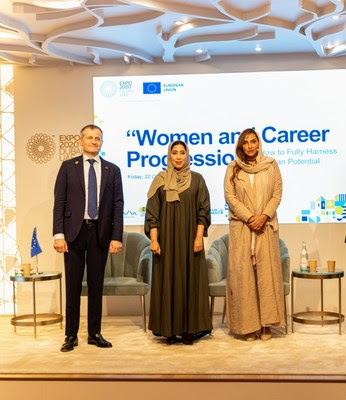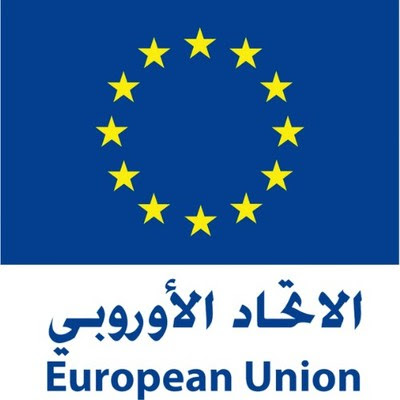TAIPEI —
After experiments aimed at assimilating ethnic minorities in Tibet, Inner Mongolia and Xinjiang, the Chinese government now is moving to apply its cultural assimilation policy for managing all minority populations by eliminating classroom instruction in native languages.
Late last month, Beijing released an updated blueprint for childhood development that removed a guarantee of the rights of minority children to be educated in their native language.
The new China National Program for Child Development (2021-2030), released on September 27, omitted previous directives such as “respect and protect the rights of children of ethnic minorities to be educated in their own language.”
Authorities changed the wording to “promoting the common national language.” The result is that children who belong to ethnic minorities likely will be taught to read and write Mandarin Chinese, instead of their native language in the classroom.
Eliminating or reducing the use of a language is one of the widely used tactics of forced assimilation. Imperial and Soviet Russia attempted to quash the use of Ukrainian, Polish, Lithuanian and Belarusian. England asserted control over Wales, Scotland and Ireland by banning schooling in those languages. Authorities banned the use of Hawaiian in public schools after American interests forced Queen Liliuokalani to abdicate in 1893.
China’s latest revision goes against UNESCO policy, which has encouraged mother tongue instruction in primary education since 1953. Numerous academic studies back that position, according to the Global Partnership for Education, which distilled the research in a 2014 blog post, saying in part, “Children are more likely to enroll and succeed in school if they use their mother tongues.”
VOA Mandarin contacted the Chinese Embassy in Washington for comment on the new policy but did not receive a response.
Pan Mei-Lin, a professor at the Department of Humanities and Social Sciences at the National Yang Ming Chiao Tung University in Taiwan, told VOA Mandarin that China’s latest policies will gradually phase out the unique cultures of the targeted minority groups.
“From the perspective of the Han Chinese, it is to increase national unity, but it’s real consequence is a kind of cultural extinction,” she told VOA Mandarin in a phone interview. There are dozens of ethnic minority groups in China but more than 90% of the total population belongs to the Han ethnic group. What is regarded as Chinese culture is Han culture.
Yang Haiying, a cultural anthropologist and professor at Shizuoka University in Japan, said the Chinese Communist Party (CCP) has been quietly expanding the new assimilation policies.
The current expansion marks a departure from the recent official policy toward ethnic minorities. In the 1980s, Beijing began promoting their cultural autonomy and worked to reduce socioeconomic inequality between minorities and Han Chinese. That position was a form of redress for the persecution and pressure to assimilate that minorities underwent during the upheaval of the Cultural Revolution from 1966 to 1977.
And although the drive to promote cultural autonomy appeared to benefit many minorities, efforts to Sinicize minority groups have been ramped up under President Xi Jinping.
The coronavirus has helped Sinicize minority enclaves. Unable to travel outside China due to pandemic restrictions, Han Chinese tourists are visiting minority areas. “The CCP has a strategy of commodifying the culture of ethnic minorities in an attempt to neutralize their unique and distinct identities,” said Joyce Ho of the Human Rights Foundation in an October 1 op-ed in The Hill.
Yang told VOA Mandarin in a phone interview that as of early September, Chinese authorities already had changed a few regulations for kindergartens and elementary schools in central Hubei Province, home to several ethnic minorities.
According to Yang, the local regulations were revised to eliminate the right of minorities to use their own language in schools in favor of Mandarin Chinese, the nation’s official language.
“The reason being they’re Tujia and She ethnic minority groups in Hubei, and the population is very small. The calculation is that there would be less reaction to these assimilation policies, and it can serve as a pilot program for extending these policies to other ethnic minorities later,” he told VOA Mandarin.
Yang said that in the past, it usually would take a year or two for authorities in Beijing to extend pilot programs to all provinces. “But now you see they are really speeding up these efforts, they don’t even bother to say that ‘we respect the rights of the minority groups’,” Yang added.
Tibet, Inner Mongolia and Xinjiang
Among the 56 ethnic minorities in China, Tibetans, Mongolians and Uyghurs have been the most outspoken against Beijing’s repressive policies.
The Diplomat reported in April 2020 that Beijing was using the social monitoring developed to contain the pandemic to increase surveillance in Tibet. Just over a year later, the Wall Street Journal reported in July that Beijing was increasing surveillance and restrictions for the 6.3 million Tibetans in China. The traditional artworks in school were all replaced by portraits of Xi Jinping.
German anthropologist Adrian Zenz is the author of “Tibetanness” Under Threat?, a study of the modern Tibetan education system. According to his research, as of 2015, all Tibetan schools had stopped recruiting teachers who teach in the Tibetan language. After collecting job advertisements by the local government for more than 10 years, Zenz concluded that Mandarin Chinese, not Tibetan, is the primary instructional language in Tibet. Official Chinese media has disputed his work and called Zenz “a swindler in academic disguise.”
The United Nations defines “any deliberate act committed with intent to destroy the language” as linguistic genocide, which in the 1948 International Convention for the Prevention and Punishment of the Crime of Genocide, is one aspect of cultural genocide, and a crime against humanity.
Kelsang Gyaltsen Bawa, the Tibetan government-in-exile’s representative to Taiwan, told VOA Mandarin he’s worried about the future of the Tibetan language.
“Before, 70% to 80% of those who live in Tibet can speak the Tibetan language fluently,” he said. “Now, among young Tibetans, 9 out of 10 don’t know how to write our own language.”
A similar linguistic erasure is occurring in Xinjiang, home to the Muslim Uyghurs.
Ilshat Hassan Kokbore, director of Chinese Affairs at World Uyghur Congress, a Germany-based advocacy organization, told VOA Mandarin that in big cities, few young people are able to speak the Uyghur language.
He added that after years of China’s assimilation policy in Xinjiang, it has become difficult for locals to preserve their language, culture and identity. “We are working hard to preserve our language and culture overseas, and we need other countries and allies to help us stop the CCP from destroying our cultural heritage,” he told VOA Mandarin.
In Inner Mongolia, ethnic Mongolian parents and students staged a large boycott in 2020, protesting a new bilingual education policy that requires schools to use national textbooks in Mandarin starting in the first grade of primary schools and in middle schools, replacing the current Mongolian textbooks.
Temtsultu Shotsood is the chairman of Southern Mongolia Congress, an NGO headquartered in Tokyo aimed at promoting the rights of Mongolians. He told VOA Mandarin the protests have led to the arrest of over 5,000 people.
The CCP “thinks that after the arrest[s], the situation is stable now. But the truth is that Mongolians are angry. They might have no channels to express their dissatisfaction for now, but on the international stage, we are reasoning with them [the CCP], we are telling them this is cultural genocide,” he told VOA Mandarin in a phone interview.
The Chinese Constitution states that “all ethnic groups in China have the freedom and right to use and develop their own spoken and written languages.”
Anthropologist Yang of Shizuoka University predicts Beijing’s next step will be to change the constitution. “The CCP is now amending local regulations, and the next step is to change the constitution, getting rid of the language that all ethnic groups have the right to use their own languages,” he said. “I suspect then very likely, all the autonomous regions will be changed to provinces as well.”
Source: Voice of America





